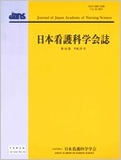Japanese
English
- 販売していません
- Abstract 文献概要
- 参考文献 Reference
- サイト内被引用 Cited by
要旨
目的:精神障害をもつ人のリカバリーにおけるピアサポートの意味を明らかにすることである.
方法: Denzinの解釈的相互作用論を理論的前提とする質的研究デザインである.精神疾患と診断され,電話相談によるピアサポートを行う人20名に,リカバリーにおけるピアサポートの経験について半構成的面接を行った.
結果:リカバリーにおけるピアサポートの意味は,1. 他者との出会いによって固有の人生を生きること,2. 他者の幸せに自分を生かすこと,であった.〈他者との出会いによって固有の人生を生きること〉は,1)精神病による画一性からの解放と,2)固有の人生を模索すること,という様相から,〈他者の幸せに自分を生かすこと〉は,1)痛み・気遣い,2)ありのままを受け入れてもらう経験,3)つながり・連帯,4)他者に対する有責感,5)他者支援に自分を生かすこと,6)意味ある人間関係を本質とする仕事,という様相から捉えられた.
考察:Lévinasの他者論から,これらの結果は,「他者」との出会いによる固有性の再獲得と,痛みをもつ他者に対する倫理的な応答としての主体性の確立と解釈された.
Purpose: The purpose of this study was to identify the meaning of peer support experiences among people with psychiatric disabilities upon recovery.
Research methods: A qualitative research design based on the theoretical premise of Denzin's interpretive interactionism theory was employed. The study was comprised of twenty participants diagnosed with mental disorders who provided peer support by telephone. They were interviewed in a semi-structured manner about their peer support experiences.
Results: Peer support upon recovery among people with psychiatric disabilities meant the following: 1. Being able to live a unique life through interactions with other people, and 2. Being able to make use of themselves for the happiness of others. “Being able to live a unique life through interactions with other people” is as being comprised of the following aspects: 1) a release from the uniformity caused by psychosis and 2) seeking a unique life. “Being able to make use of themselves for the happiness of others” is as being comprised of the following aspects: 1) pain and concern, 2) experiences in which they were accepted as themselves, 3) connections and solidarity, 4) feeling responsibility toward other people, 5) making use of themselves to support other people, and 6) work that makes meaningful human relationships essential.
Consideration: From Lévinas' theory of “others,” these results were interpreted as a regaining of uniqueness through the interaction with “others,” whom it is impossible to fully comprehend, and an establishment of subjectivity as an ethical response to others with pain.
Copyright © 2015, Japan Academy of Nursing Science. All rights reserved.


